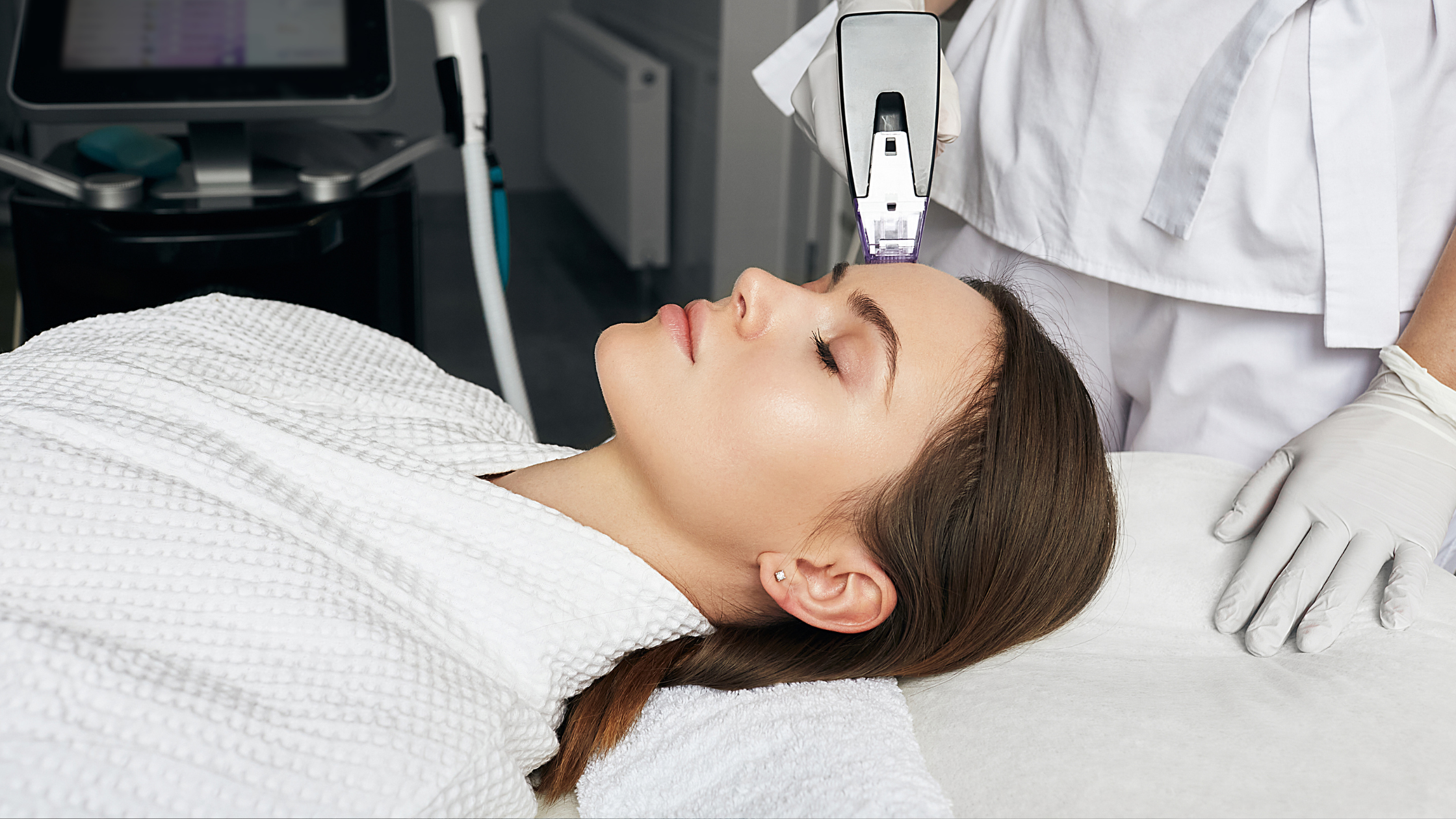Morpheus 8 and Fertility: Potential Impact When Trying to Conceive (TTC)
As technology advances in the field of cosmetic and dermatological treatments, individuals exploring fertility treatments may wonder about the safety of procedures like Morpheus 8.
Morpheus 8 and Fertility: Potential Impact When Trying to Conceive
Morpheus 8, is an advanced skin remodeling that uses fractional radiofrequency (RF) microneedling that claims to tighten, smooth and reduce aging of skin.
Morpheus 8 has been gaining popularity. However, for those on a fertility journey and/or trying to conceive (TTC) or undergoing fertility treatments, concerns about the safety of such procedures are common. In this article, we dive into the considerations surrounding Morpheus 8 and its safety implications for individuals navigating a fertility journey.
Understanding Morpheus 8
Morpheus 8 is a minimally invasive cosmetic procedure that combines microneedling with RF energy. It works by delivering controlled heat deep into the skin layers, stimulating collagen production and promoting tissue remodeling.
Microneedling utilizes numerous fine needles to create tiny channels in the skin's surface layer. These channels enable deeper penetration of RF energy into the underlying tissues, triggering collagen production and enhancing blood circulation in the treated area. Morpheus 8 is commonly used to address concerns such as wrinkles, acne scars, skin laxity, and uneven skin texture.₁
Morpheus 8 Safety Considerations for Those TTC or Undergoing Fertility Treatments
For individuals who are TTC or undergoing fertility treatments, safety considerations regarding Morpheus 8 and similar cosmetic procedures are important. While there is limited research specifically addressing the safety of Morpheus 8 during fertility treatments, several factors should be taken into account:
1. Potential Thermal Effects: The heat generated during Morpheus 8 treatment penetrates deep into the skin layers, potentially affecting underlying tissues and structures. Concerns may arise regarding the impact of this thermal energy on reproductive organs and gametes (sperm and eggs) in individuals undergoing fertility treatments.
2. Hormonal Influences: Fertility treatments often involve hormonal medications that regulate ovulation, follicle development, and uterine receptivity. It's important to consider how procedures like Morpheus 8 may interact with these hormonal influences and whether they could affect treatment outcomes or hormonal balance. Additionally, concern about unwanted side effects are important to consider.
3. Precautions During Pregnancy: While Morpheus 8 is generally considered safe for non-pregnant individuals, special precautions should be taken for those who may conceive shortly after treatment. It's recommended to avoid cosmetic procedures, including Morpheus 8, during pregnancy and while actively TTC to minimize potential risks to the developing fetus. Optional cosmetic treatments are generally not advised after an embryo transfer and during the two-week-wait.
4. Consultation with Healthcare Providers: Individuals considering Morpheus 8 or other cosmetic treatments during fertility treatments should consult with their healthcare providers, including reproductive endocrinologists (REI) and dermatologists. Open communication about treatment plans, potential risks, and safety considerations is essential for informed decision-making.
While Morpheus 8 may offer cosmetic benefits for individuals seeking to improve skin quality and appearance, safety considerations are crucial, especially for those TTC or undergoing fertility treatments. While research specifically addressing the safety of Morpheus 8 during fertility treatments is limited, individuals should prioritize consultation with their healthcare providers and weigh the potential risks and benefits of such procedures.
References:
Smith, J. (2024, March 6). What is Morpheus8? Rejuvenation Dermatology. https://www.rejuv.ca/what-is-morpheus8/#:~:text=Morpheus%208%20is%20an%20advanced%20skin%20remodeling%20that,energy%20that%20encourages%20collagen%20production%20and%20cellular%20regeneration.
Medical Disclaimer:
The information provided in this blog is intended for general informational purposes only and should not be considered as a substitute for professional medical advice, diagnosis, or treatment. Always seek the advice of your healthcare provider or qualified medical professional with any questions you may have regarding a medical condition. Never disregard professional medical advice or delay in seeking it because of something you have read in this blog.


